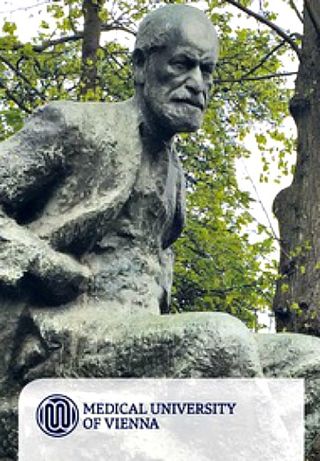Freudian Psychology
Did Vienna Repress Freud? A New Attitude in Austria
Given scant attention in Vienna for decades, Freud may be staging a comeback.
Posted May 15, 2018

After a long absence, Sigmund Freud is returning to Vienna—at least symbolically. A larger-than-life statue of Freud by Oscar Nemon will be unveiled outside the Medical University of Vienna on June 4, 2018, 80 years to the day from when its subject fled the city under threat of Nazi arrest.
It's hard to say how Freud would have felt about this homecoming--his ambivalence about the city where he lived for most of his life is well documented--but it's possible to hazard a guess about one aspect. Freud often complained that Vienna never afforded him the respect that he received from the rest of the world. It is unlikely that he would have been pleased by his posthumous treatment in Austria's capital.
Vienna has named no streets or boulevards for one of its most famous residents, no underground station, no grand plaza; Freudplatz, created a few years ago in front of the small private Sigmund Freud University, is off the beaten tourist path. Sigmund Freud Park, near the University of Vienna, is better known for being backed up against the impressive Votive Church than for its association with the father of psychoanalysis.
Nor does the park–or any other public place in the city--offer any artistic representation of the internationally renowned figure associated with it. A bust of Freud at the University of Vienna, a replica of a work by David Paul Konigsberger that disciples and friends presented to Freud in 1921, is tucked away in the main building's colonnade beside many far lesser known figures. No sign or special placement distinguishes it from the long row of bronzed alums.
And then there is Vienna's Sigmund Freud Museum, established in 1971 at 19 Berggasse, Freud's home and workplace from 1891 to 1938. It displays several artifacts later donated by Freud's daughter, Anna–perhaps she was making a subtle statement in returning one of the traveling trunks the family took with them on their forced exile--but it feels a bit like a haunted house, most of the original furnishings having taken up residence in London along with the Freuds. It is in the Freud Museum London that you can find the iconic couch, the Persian rugs, the Egyptian gods and goddesses. The book of photographs taken by Edmund Engelman shortly before the family left, sold in the Vienna museum's small gift shop, gives a better feel for the domicile disrupted by Hitler's henchmen than the series of empty exhibition rooms does.
In his introduction to the 1976 edition of that book, Berggasse 19: The Photographs of Edmund Engelman, Freud biographer Peter Gay sums up the attitude of the Austrian capital:
Most of the recognition Freud has received in Vienna has been the work of foreigners: His bust, which now stands in the University, was presented by Ernest Jones. There is in Vienna, crisscrossed with streets named after its great, or at least prominent, residents, no Freudgasse....The public indifference, the latent hostility, are chilling. Freud, the first psychologist to chart the workings of ambivalence, had, in this city he hated but could not leave, abundant materials for the exercise of mixed feelings. Vienna, it seems, has largely repressed Freud. (p. 14)
Nearly four decades later, the Viennese observance--or general lack thereof--of the 75th anniversary of Freud's death bore out the biographer's assertions. The municipally funded, and aptly named, "Hidden Freud" exhibition in 2014 consisted of 16 photographs displayed in public spaces around the city. In order to access the (rather scant) additional information about the significance of these sites, however, visitors were required to scan the QR codes attached to the posters. Those without smart phones—or a scanning app—would have missed out on even this underwhelming commemoration.
But perhaps things are changing. Not only will the unveiling of the Freud statue be met with great fanfare--members of the Freud family, as well as many other dignitaries, will speak at an associated symposium—but plans are underway to expand and modernize the Sigmund Freud Museum, to make it a world class institution fitting for its subject. Who knows? Maybe these are signs that Freud is rising to surface of the collective consciousness of the city he loved and hated--and which returned the favor.


